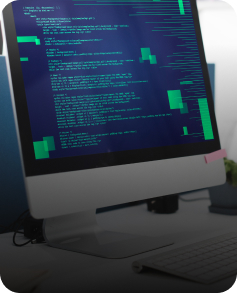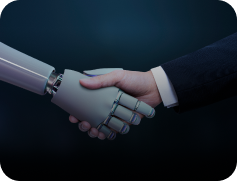Today software development as an industry is going through radical changes. Teams across industries are getting slashed or reviewed as we speak. Few of these impacts cut really deep like this where Google announced layoffs of python teams
While this brings a sort of hysteria, it is important to look at this in more balanced terms. We at Interaction labs have been advocating for future ready development practices with our clients since quite long.
Whenever we talk about custom software development trends it is important to look at AI development and its first, second and third order effects.
A recent report from Deloitte highlights a few really interesting tech trends which also sheds light on how the software development industry grows & evolves. We have shared a few of them here and hope these trends take software development to new heights.
From DevOps to DevEx
A new focus is emerging in software companies that are looking to hire developers. It is called – Developer Experience and termed as a developer first mindset that focuses on each touchpoint that software engineers with organizations to improve day to day productivity.
- Architecture
Maximizing polyglot modularity & maintainability to promote scalability, reusability & reliability - Measurement tools Garnering data on platform health, product usage, & developer efficiency Enablement tools
- Enablement Tools Creating tools to ensure collaboration & knowledge-sharing among engineers
- Development accelerators Enhancing efficiency and reducing friction in day-to-day development activities
- Service ownership Owning and integrating responsibilities across the life cycle to reduce risk
- Workflow management and DevSecOps Increasing organization and coordination of activities to drive consistent outcomes
- Community & culture Promoting a fun, productive, & diverse workplace environment
- Continuous learning Developing education pathways for engineers throughout their careers
- Career progression and development Mobilizing advancement opportunities for engineers at all stages of their careers
- Architecture
Maximizing polyglot modularity & maintainability to promote scalability, reusability & reliability - Measurement tools Garnering data on platform health, product usage, & developer efficiency Enablement tools
- Enablement Tools Creating tools to ensure collaboration & knowledge-sharing among engineers
- Development accelerators Enhancing efficiency and reducing friction in day-to-day development activities
- Service ownership Owning and integrating responsibilities across the life cycle to reduce risk
- Workflow management and DevSecOps Increasing organization and coordination of activities to drive consistent outcomes
- Community & culture Promoting a fun, productive, & diverse workplace environment
- Continuous learning Developing education pathways for engineers throughout their careers
- Career progression and development Mobilizing advancement opportunities for engineers at all stages of their careers
- Architecture
Maximizing polyglot modularity & maintainability to promote scalability, reusability & reliability - Measurement tools Garnering data on platform health, product usage, & developer efficiency Enablement tools
- Enablement Tools Creating tools to ensure collaboration & knowledge-sharing among engineers
- Development accelerators Enhancing efficiency and reducing friction in day-to-day development activities
- Service ownership Owning and integrating responsibilities across the life cycle to reduce risk
- Workflow management and DevSecOps Increasing organization and coordination of activities to drive consistent outcomes
- Community & culture Promoting a fun, productive, & diverse workplace environment
- Continuous learning Developing education pathways for engineers throughout their careers
- Career progression and development Mobilizing advancement opportunities for engineers at all stages of their careers
Leaders feel that a good developer experience results in good product & customer experience. Metrics & KPIs are evaluated from how much time spent on code to time to first pull requests. Looking forward companies may approach a more collaborative approach between teams & tools.
Rise of the Builders - AI-Powered Development

Companies have enabled its employees to create their own solutions with limited involvement from IT. They have developed a broad portfolio of digital platforms to match its users’ capabilities and needs. It involves things like automated security testing, component scanning and licensing, and release automation. This shows that in 2024 and beyond, we can expect to see AI-driven tools that assist developers by automating repetitive tasks, generating code, and helping with debugging. AI-powered testing and code review tools will ensure higher code quality and faster development cycles
Want faster growth?
Contact Us Today !
Contact us today to discuss your project & bring your vision to life.
Low-Code and No-Code Development
The trend of low-code and no-code development platforms will continue to gain momentum. These platforms empower people with limited coding experience to build functional applications. This democratization of development will lead to increased innovation and a broader pool of developers
Here are few notable no code development websites:
Extended Reality (XR)
Virtual Reality (VR) and Augmented Reality (AR) are expanding beyond gaming and entertainment. We can anticipate more applications that incorporate XR technologies in 2024 and beyond. From immersive training simulations to enhanced customer experiences, software developers will explore new ways to harness the potential of XR.
Cybersecurity-First Development

With the rise in cyber threats, cybersecurity will be a top priority. Development teams will need to adopt a “security-first” mindset, implementing robust security measures throughout the development lifecycle. This includes secure coding practices, vulnerability assessments, and continuous monitoring.
Ethical AI and Responsible Development

As AI becomes more prevalent, ethical concerns surrounding AI algorithms and data usage will grow. Software developers will place a strong emphasis on ethical AI development, ensuring fairness, transparency, and accountability in AI systems. Responsible AI practices will be central to building trust with users and stakeholders.
Collaborative Development Environments

The trend of remote work and collaboration will persist, leading to the development of more collaborative development environments. Tools and platforms that facilitate real-time collaboration among geographically dispersed development teams will become essential.
Sustainable Software Development

In an era of increasing environmental awareness, sustainable software development will gain traction. Developers will focus on optimizing code for energy efficiency, reducing resource consumption, and minimizing the carbon footprint of software applications.
Conclusion
In conclusion, the future of software development is exciting, with AI, low-code/no-code, edge computing, XR, and cybersecurity taking center stage. Developers who embrace these trends and adapt to the evolving technological landscape will be well-positioned to create efficient, secure, and innovative software solutions.


